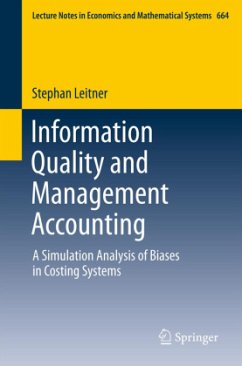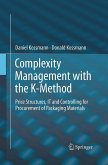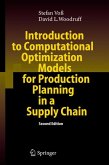One of the main aims of management accounting is to provide managers with accurate information in order to provide a good basis for decision-making. There is evidence that the information provided by management accounting systems (MAS) is distorted and the occurrence of biases in accounting information is widely accepted among users of MAS. At the same time, the intensity and the frequency of use of MAS increase, too. Consequently, the quality of the provided information is critical. The focus of this simulation study is twofold. On the one hand, the impact of the sophistication of traditional costing systems on error propagation in the case of a set of input biases is investigated. On the other hand, the impact of single and multiple input biases on the quality of the information provided by traditional costing systems is focused. In order to investigate the research questions, a simulation approach is applied.
Bitte wählen Sie Ihr Anliegen aus.
Rechnungen
Retourenschein anfordern
Bestellstatus
Storno








